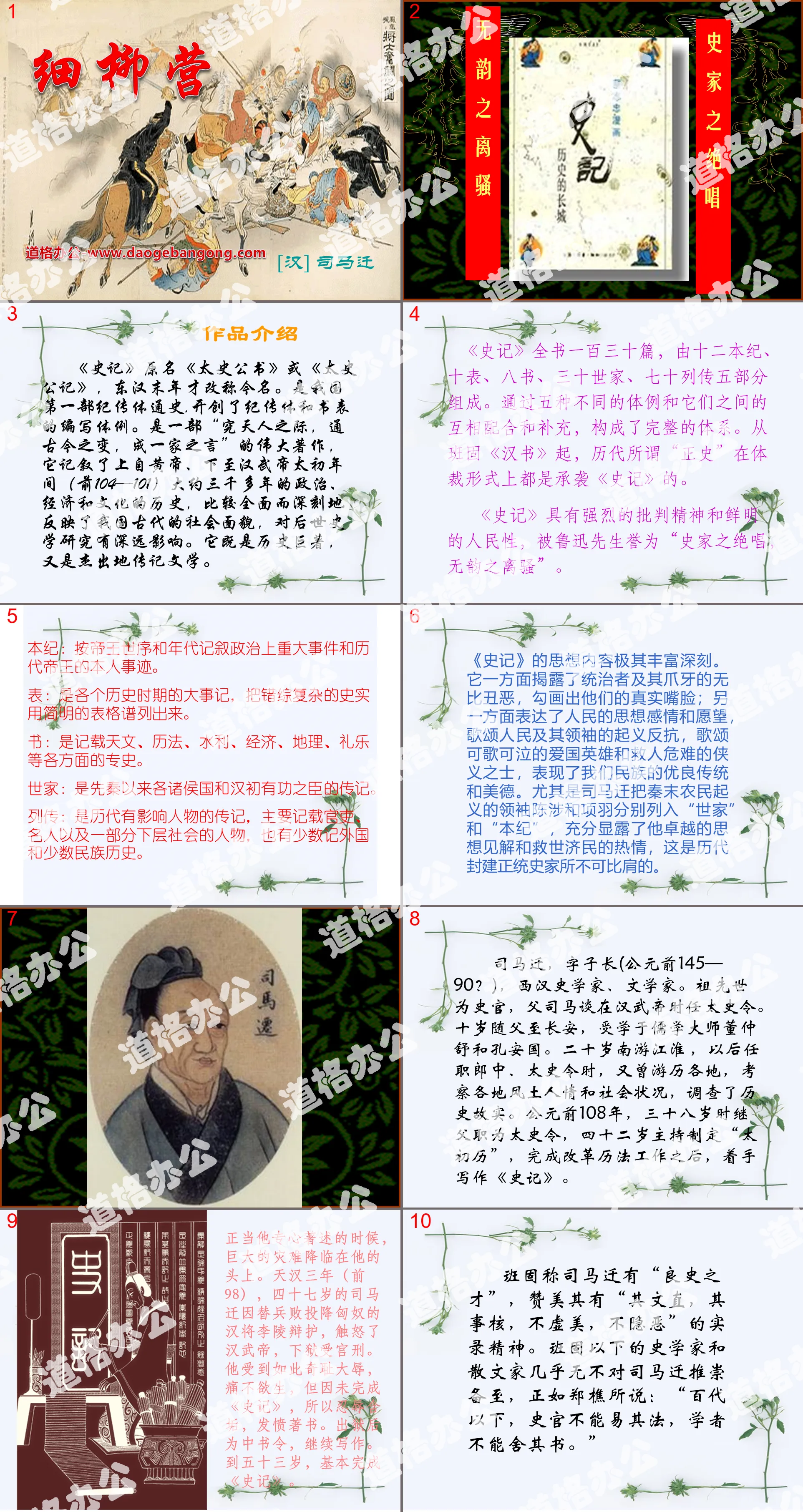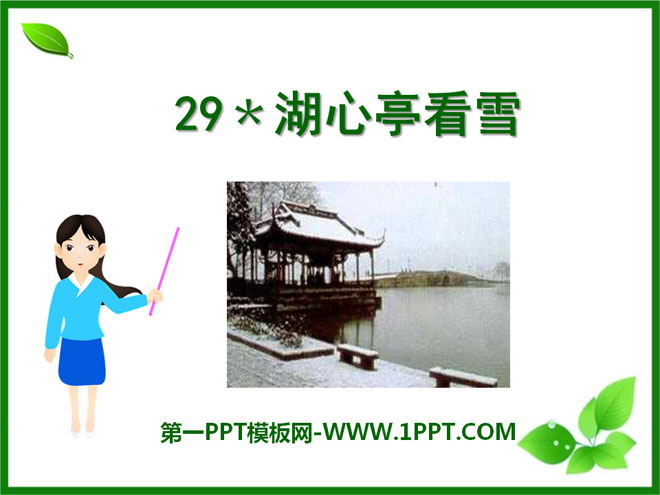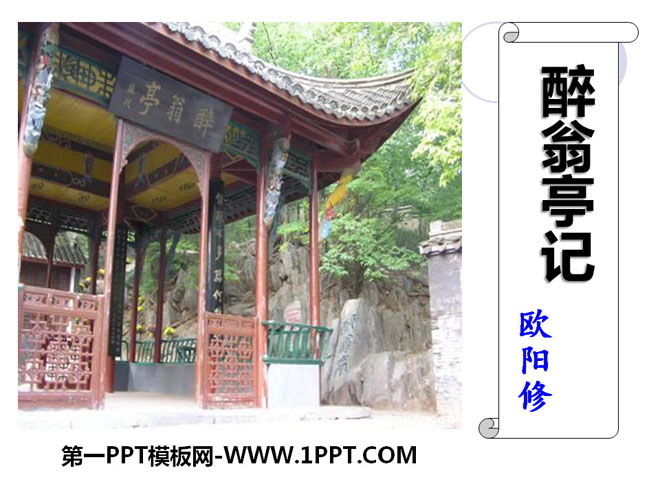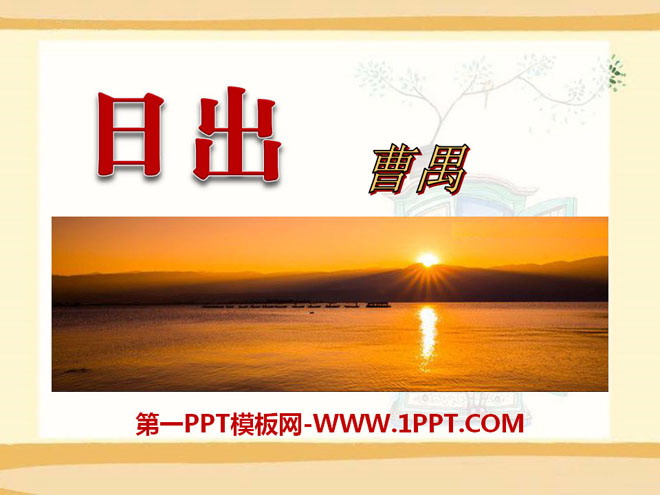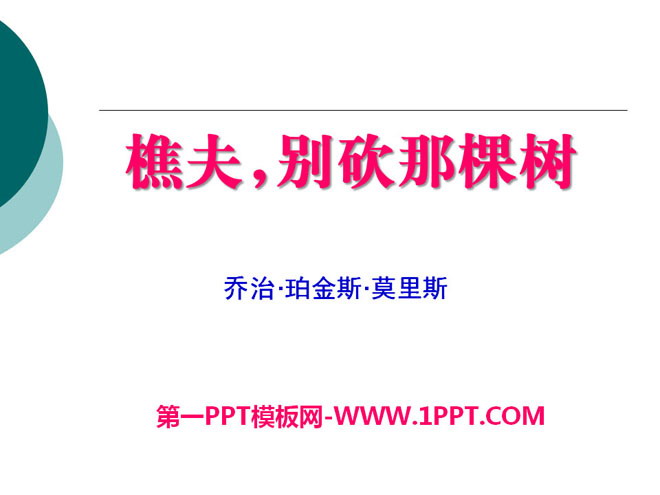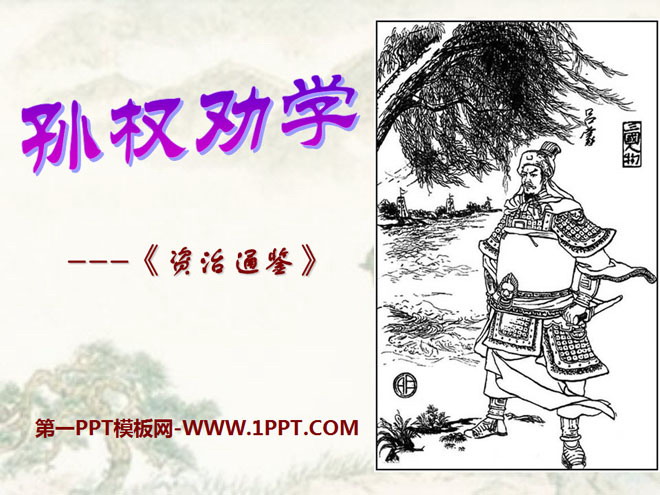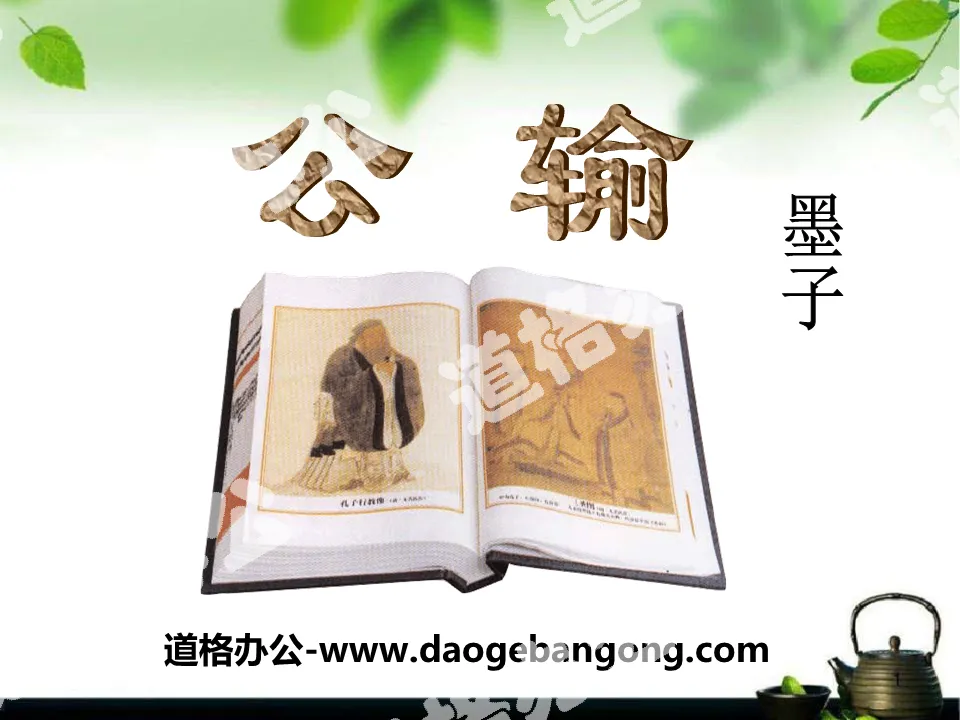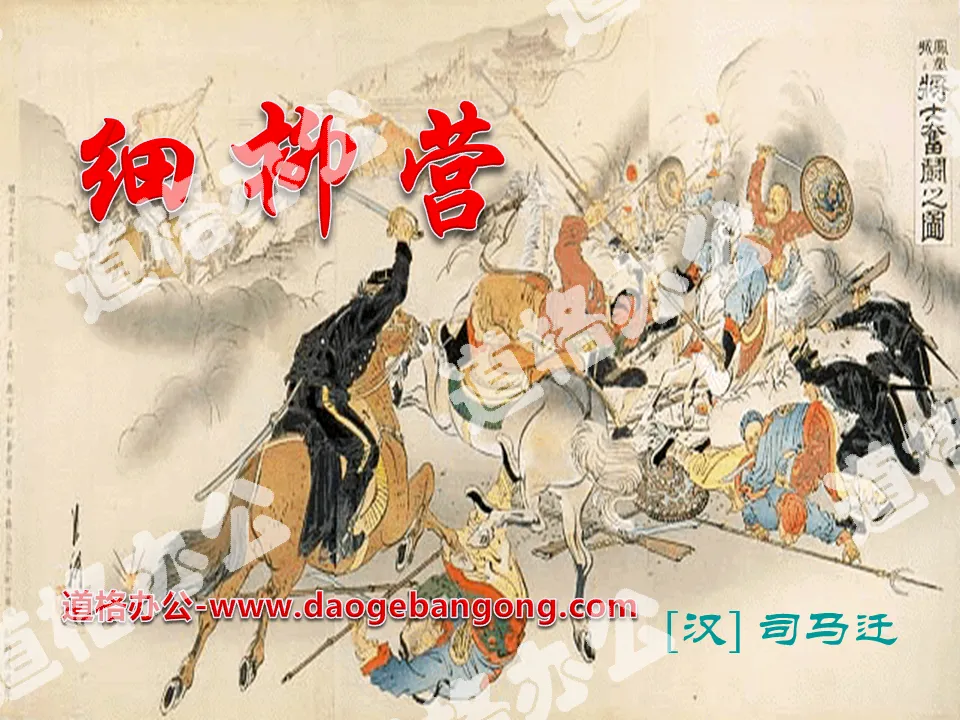
| Category | Format | Size |
|---|---|---|
| Chinese version of eighth grade Chinese language volume 2 | pptx | 6 MB |
Description
"Xiliu Camp" PPT courseware 3
Introduction of works
The original name of "Historical Records" was "Tai Shi Gong Shu" or "Tai Shi Gong Ji". It was renamed to its present name at the end of the Eastern Han Dynasty. It is the first general history of biographies in my country and pioneered the writing style of biographies and tables. It is a great work that "studies the relationship between heaven and man, understands the changes of ancient and modern times, and becomes a family." It narrates the political and economic affairs of more than three thousand years from the Yellow Emperor to the Taichu period of Emperor Wu of the Han Dynasty (104-101 BC). and cultural history, which reflects the social outlook of ancient my country relatively comprehensively and profoundly, and has a profound impact on the historical research of later generations. It is both a historical masterpiece and an outstanding piece of biographical literature.
The "Historical Records" has one hundred and thirty chapters, consisting of five parts: twelve chronicles, ten lists, eight books, thirty aristocratic families, and seventy biographies. Through five different styles and their mutual cooperation and complementation, a complete system is formed. Starting from Ban Gu's "Han Shu", the so-called "official histories" of all dynasties have inherited the "Historical Records" in terms of genre and form.
"Historical Records" has a strong critical spirit and distinctive people's character. It was praised by Mr. Lu Xun as "the swan song of historians and the rhymeless Li Sao".
This Chronicle: records major political events and the personal deeds of emperors of the past dynasties according to the order and chronology of the emperors.
Table: It is a record of major events in various historical periods, listing the intricate history in practical and concise tables.
Book: It is a special history recording various aspects such as astronomy, calendar, water conservancy, economy, geography, rituals and music.
Aristocratic Family: This is the biography of the ministers who have made outstanding achievements in the vassal states since the pre-Qin Dynasty and the early Han Dynasty.
Biographies: biographies of influential figures from past dynasties. They mainly record officials, celebrities and some figures from the lower class. There are also a few records of the history of foreign countries and ethnic minorities.
The ideological content of "Historical Records" is extremely rich and profound. On the one hand, it exposes the incomparable ugliness of the rulers and their minions and outlines their true faces; on the other hand, it expresses the people’s thoughts, feelings and wishes, praising the uprising and resistance of the people and their leaders, and praising the laudable patriotic heroes and their efforts to save lives. Chivalrous men in times of crisis demonstrate the fine traditions and virtues of our nation. In particular, Sima Qian included Chen She and Xiang Yu, the leaders of the peasant uprising in the late Qin Dynasty, into the "Aristocratic Family" and "Benji" respectively, which fully demonstrated his outstanding ideological insights and enthusiasm for saving the world and benefiting the people. This is unparalleled by the feudal orthodox historians of the past dynasties. .
Background introduction
In the sixth year after Emperor Wen of the Han Dynasty (158 BC), the Xiongnu invaded, burned, killed and looted, and the situation was grim. In order to strengthen defense, the Han Dynasty appointed generals Liu, Xu and Zhou to station at Bashang, Jimen and Xiliu respectively. These three places were relatively close to Chang'an, the capital of the country, and Emperor Wenwen of the Han Dynasty went to these three places to comfort the troops. Passing by the Bashang Army and the Thorny Gate Army all the way, the garrison generals greeted them respectfully. Only when they arrived at the Xiliu Army where Zhou Yafu was stationed, the emperor's vanguard and chariots were blocked from the gate of the military camp. The emperor had to issue an edict to notify the camp gate. Admission. Zhou Yafu didn't come out to greet him, and he couldn't kneel down and bow when he saw him. When the emperor left, Zhou Yafu did not send him off.
This was really rare in those days. All the ministers were surprised, thinking that Zhou Yafu was arrogant and rude. But Emperor Wen of Han was not surprised and greatly appreciated Zhou Yafu's strict military management.
After the death of Emperor Wen of the Han Dynasty, Emperor Jing of the Han Dynasty succeeded to the throne, and the "Rebellion of the Seven Kings" broke out. The rebels, numbering half a million, approached Kyoto. Emperor Jing appointed Zhou Yafu as Taiwei and gathered a large army to fight against the rebels. In just three months, the rebellion was put down.
Read the pronunciation correctly
Thorny
crossbow bridle
Chest sigh
quilt
Chariot and riding
Six years after Emperor Wen (1)
(1) Emperor Wen: Liu Heng, son of Han Emperor Liu Bang, reigned from 180 BC to 157 BC. After the death of Empress Lu, Zhou Bo and others pacified the Lus. During their reign, they implemented the policy of "resting with the people", reduced local taxes, levies and prison sentences, restored and developed agricultural production, and weakened the power of the princes to consolidate the central power. Old historians put him together with the reign of Emperor Jing, calling it the "Government of Wen and Jing". The next six years were 158 BC.
The Xiongnu (2) entered the border. Therefore, Zongzheng and Liu Li were appointed as generals (3), and Junba was on the top (4); Zhu Zihou Xu Li was appointed as generals (5), and Jun Jimen (6) was appointed; Hanoi Shou Yafu was appointed as general (7), and Jun Xiliu (8) ); to be prepared.
(2) Xiongnu: the nomadic people in the north of ancient my country. (3) Zongzheng: official name, the chief responsible for the internal affairs of the royal family, served by the royal family. (4) Army: garrison. Bashang: an ancient place name, named after it is located on the west plateau of Bashui River, east of today's Xi'an City, Shaanxi Province. (5) Zhuzihou: title. (6) Thorny Gate: Originally the Qin Palace Gate, it is located in the northeast of Xianyang, Shaanxi Province. (7) Hanoi: the name of the county, in the northern part of present-day Henan. Shou, the chief executive of the county.
(8) Xiliu: An ancient place name, located southwest of Xianyang, Shaanxi Province, on the north bank of the Weihe River.
The Huns invaded the Han border on a large scale. Therefore, the imperial court appointed Zong Zhengguan Liu Li as the general and garrisoned at Ba Shang; Zhu Zihou Xu Li as the general and garrisoned at Jimen; and appointed Zhou Yafu, the prefect of Hanoi County, as the general and garrisoned at Xiliu to guard against the intrusion of the barbarians.
The first paragraph briefly introduces the background and beginning of the story, explaining the tense situation on the border and the locations of Liu, Xu and Zhou's armies.
The first level: From "Shang Zi Lao Jun" - "The emperor is here first, but he is not allowed to enter."
It is written that the troops of Xiliu Camp are in good order and always ready.
The second level goes from "The pioneer said: 'The Emperor is coming'" to "The Emperor then pressed the bridle and walked slowly".
It is written that the military discipline of Xiliu Camp is strict, even the emperor is no exception.
The third level: From "Zhiying----leaving as a gift".
The military etiquette of Xiliu Camp is rigorous and meticulous.
Summary second paragraph
It is written that Zhou Yafu strictly managed the army in Xiliu Camp.
The author uses a lot of pen and ink to describe in detail the majestic military appearance and meticulous military discipline of Xiliu Camp from the front and side.
Part Three: It writes that Emperor Wen of Han Dynasty understood the righteousness well and praised Zhou Yafu for his strict military management.
Thoughts and Discussions
1. In the sixth year of Emperor Wen of the Han Dynasty, the Huns invaded the border areas on a large scale. The scale was very large and the situation was very serious. How did Emperor Wen of the Han Dynasty deal with this situation?
Emperor Wen of the Han Dynasty quickly dispatched capable generals to guard the border, and at the same time personally sent troops to comfort the troops to boost morale.
2. When the emperor goes to the troops to express condolences to the soldiers, how will the troops usually react?
If you were a general stationed at the border, how would you greet the emperor with your soldiers?
Let’s take a look at how Bashang, Thorny Gate and Xiliu barracks welcomed the emperor respectively?
Supreme Overlord, Thorny Sect Army: gallop straight in and send the following riders to greet them.
The willow army is now thin: the sergeants are well equipped with armor, sharp swords, bows and crossbows.
The emperor arrived first and was not allowed to enter. The pioneer said: The emperor is here. Military Gate Captain: The army hears the general's orders but not the emperor's edicts.
Ju Wuhe: When you reach the top, you are not allowed to enter the city. The emperor is not allowed to enter the city. The officials of Bimen said: "You are not allowed to drive in the army."
Arriving at the camp: Yafu held his troops and bowed, and the army bowed before the emperor.
Summarize
Emperor Wen of the Han Dynasty personally mobilized his troops. When they arrived at the Bashang and Jimen barracks, they could drive straight in, and the generals and officers and soldiers would greet them on horseback. When they arrived at the Xiliu military camp, the troops looked majestic and had orders like a mountain. Even if the emperor arrived, he was not allowed to enter the camp. The author uses contrast and foil techniques to vividly portray the image of a true general who is rigorous in running the army and upright.
Keywords: Xiliuying teaching courseware, Chinese version of eighth grade Chinese courseware volume 2, eighth grade Chinese slide courseware download, Xiliuying PPT courseware download, .ppt format
For more information about the PPT courseware of "Xiliu Camp", please click the "Xiliu Camp" ppt tag.
"Xiliuying" PPT courseware 2:
"Xiliu Camp" PPT Courseware 2 First Lesson Teaching Objectives 1. Overall perception, understanding of the background, and mastering literary common sense. 2. Read the text aloud and become familiar with the content. 3. Clear the text and accumulate classical Chinese words and phrases. Watch the hunting king Wei. The strong wind and the sound of horns and bows sound, and the general hunting Wei...
"Xiliu Camp" PPT courseware:
"Xiliu Camp" PPT courseware 1. Introduction of new lessons There is an old saying: When the general is outside, the military orders will be compromised. But there are very few people who really do it. Zhou Yafu of the Western Han Dynasty did it. Instead of offending Long Yan, he was praised by Emperor Wen as a true general. Let us enter the classroom together...
File Info
Update Time: 2024-07-06
This template belongs to Chinese courseware Chinese version of eighth grade Chinese language volume 2 industry PPT template
"Xiliu Camp" PPT courseware 3 Simple campus recruitment activity planning plan summary enterprise and institution recruitment publicity lecture PPT template is a general PPT template for business post competition provided by the manuscript PPT, simple campus recruitment activity planning plan summary enterprise and institution recruitment promotion Lecture PPT template, you can edit and modify the text and pictures in the source file by downloading the source file. If you want more exquisite business PPT templates, you can come to grid resource. Doug resource PPT, massive PPT template slide material download, we only make high-quality PPT templates!
Tips: If you open the template and feel that it is not suitable for all your needs, you can search for related content "Xiliu Camp" PPT courseware 3 is enough.
How to use the Windows system template
Directly decompress the file and use it with office or wps
How to use the Mac system template
Directly decompress the file and use it Office or wps can be used
Related reading
For more detailed PPT-related tutorials and font tutorials, you can view: Click to see
How to create a high-quality technological sense PPT? 4 ways to share the bottom of the box
Notice
Do not download in WeChat, Zhihu, QQ, built-in browsers, please use mobile browsers to download! If you are a mobile phone user, please download it on your computer!
1. The manuscript PPT is only for study and reference, please delete it 24 hours after downloading.
2. If the resource involves your legitimate rights and interests, delete it immediately.
3. Contact information: service@daogebangong.com
"Xiliu Camp" PPT courseware 3, due to usage restrictions, it is only for personal study and reference use. For commercial use, please go to the relevant official website for authorization.
(Personal non-commercial use refers to the use of this font to complete the display of personal works, including but not limited to the design of personal papers, resumes, etc.)
Preview
